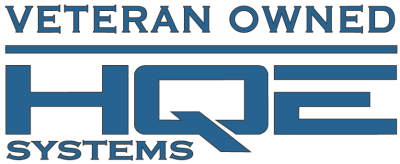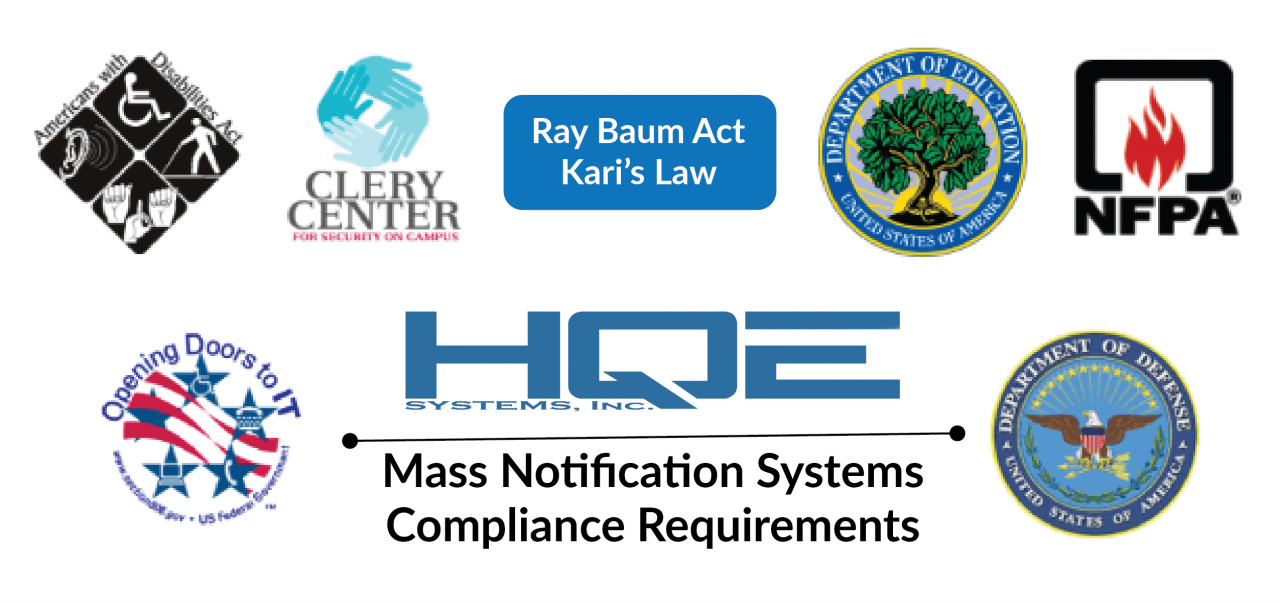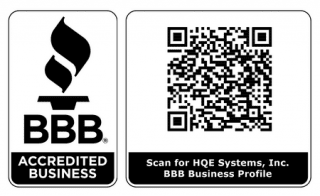As an Emergency Mass Notification Systems Engineer, it is imperative to emphasize the importance of having a mass notification system that is compliant with the various regulations and laws that govern emergency communications. In this white paper, we will discuss the reasons why compliance with Ray Baum Law, Kari’s Law, NFPA 72, HEO Act, Clery Act, and UFC policies is critical in ensuring the safety and security of individuals in emergency situations.
Ray Baum Law
The Ray Baum Act, also known as the “Improving Broadband Access for Veterans Act of 2017,” was enacted to enhance the accuracy of emergency responses in multi-line telephone systems (MLTS). The law mandates that all MLTS must have a dispatchable location feature, which provides the precise location of the caller to emergency responders. This requirement is essential in emergency situations where quick and accurate identification of the location of the emergency is critical.
Kari’s Law
Kari’s Law was established to ensure that anyone can dial 911 directly from any phone within a business, without having to dial any prefix or access code to reach an outside line. This law is particularly important for individuals who are unfamiliar with the phone system in a building, such as visitors or contractors, and may not know how to access an outside line. Kari’s Law also requires that emergency calls be routed directly to 911 without the need for additional assistance or confirmation.
NFPA 72
The National Fire Protection Association (NFPA) 72 outlines the requirements for fire alarm and emergency communications systems in buildings. This standard establishes guidelines for the installation, testing, and maintenance of emergency communication systems to ensure that they are functioning correctly during an emergency. Compliance with NFPA 72 ensures that the emergency communication system is reliable and can effectively alert individuals to evacuate the building during a fire or other emergency.
HEO Act
The Higher Education Opportunity (HEO) Act was established to improve campus safety and security by requiring colleges and universities to implement emergency response and evacuation procedures. Compliance with the HEO Act ensures that educational institutions have the necessary infrastructure and procedures in place to respond quickly and effectively to emergencies on campus.
Clery Act
The Clery Act is a federal law requiring colleges and universities to disclose information about crime on campus. The law also mandates that educational institutions have an emergency notification system in place to alert students and staff of any imminent threats to their safety. Compliance with the Clery Act ensures that educational institutions have a comprehensive emergency notification system that can quickly and effectively alert individuals of any potential danger on campus.
UFC Policies
The Unified Facilities Criteria (UFC) are a set of guidelines established by the Department of Defense to ensure that military facilities have adequate and reliable emergency notification systems. Compliance with UFC policies is critical in ensuring the safety and security of military personnel and that military facilities have the necessary infrastructure and procedures to respond quickly and effectively to emergencies.
In conclusion, compliance with Ray Baum Law, Kari’s Law, NFPA 72, HEO Act, Clery Act, and UFC policies is critical in ensuring the safety and security of individuals in emergency situations. As an Emergency Mass Notification Systems Engineer, it is imperative to ensure that the mass notification system is compliant with these laws and regulations to ensure that it can function effectively during an emergency. Failure to comply with these laws and regulations can result in significant fines and penalties, but more importantly, it can compromise the safety and security of individuals in emergency situations.
At HQE Systems, we understand the importance of a fully compliant emergency mass notification system. As a solutions provider, we have the expertise and experience to ensure that our systems meet all the requirements of Ray Baum Law, Kari’s Law, NFPA 72, HEO Act, Clery Act, and UFC policies. Our team of experts has experience in all industries and can tailor a solution that meets your organization’s unique needs. We take a comprehensive approach to system design, installation, and maintenance to ensure that our solutions are reliable and effective in emergency situations.
If you have any questions about our solutions or the compliance of your current system, we encourage you to reach out to our Systems Subject Matter Expert, Dan Rogers at Info@HQESystems.com. We are committed to providing our clients with the best possible emergency mass notification systems that are fully compliant and meet all their needs.
In summary, compliance with the various regulations and laws governing emergency communication systems is crucial to ensure the safety and security of individuals in emergency situations. The Ray Baum Law, Kari’s Law, NFPA 72, HEO Act, Clery Act, and UFC policies are some of the critical regulations and laws that must be adhered to when implementing an emergency mass notification system.
At HQE Systems, we are dedicated to providing fully compliant solutions that meet your organization’s unique needs. Our experience in all industries, comprehensive approach to system design, installation, and maintenance, and commitment to excellence make us a trusted partner for all your emergency mass notification needs.
____________________
HQE Systems, Inc. | HQE is a Minority-Owned Service Disabled Veteran Owned Small Business (SDVOSB) providing complete solutions for Mass Notification Systems, Electronic Security Systems, Software Development Services, Contract Support, and Prototyping Services. As a brand-agnostic solutions provider, HQE prides itself on providing the BEST solution for the project without pushing a single brand. HQE possesses factory certifications and reseller licenses to ensure our clients receive the highest quality service at the ideal budget. HQE can provide complete design, installation, integrations, upgrades, and long-term maintenance support for any size and scope project.


